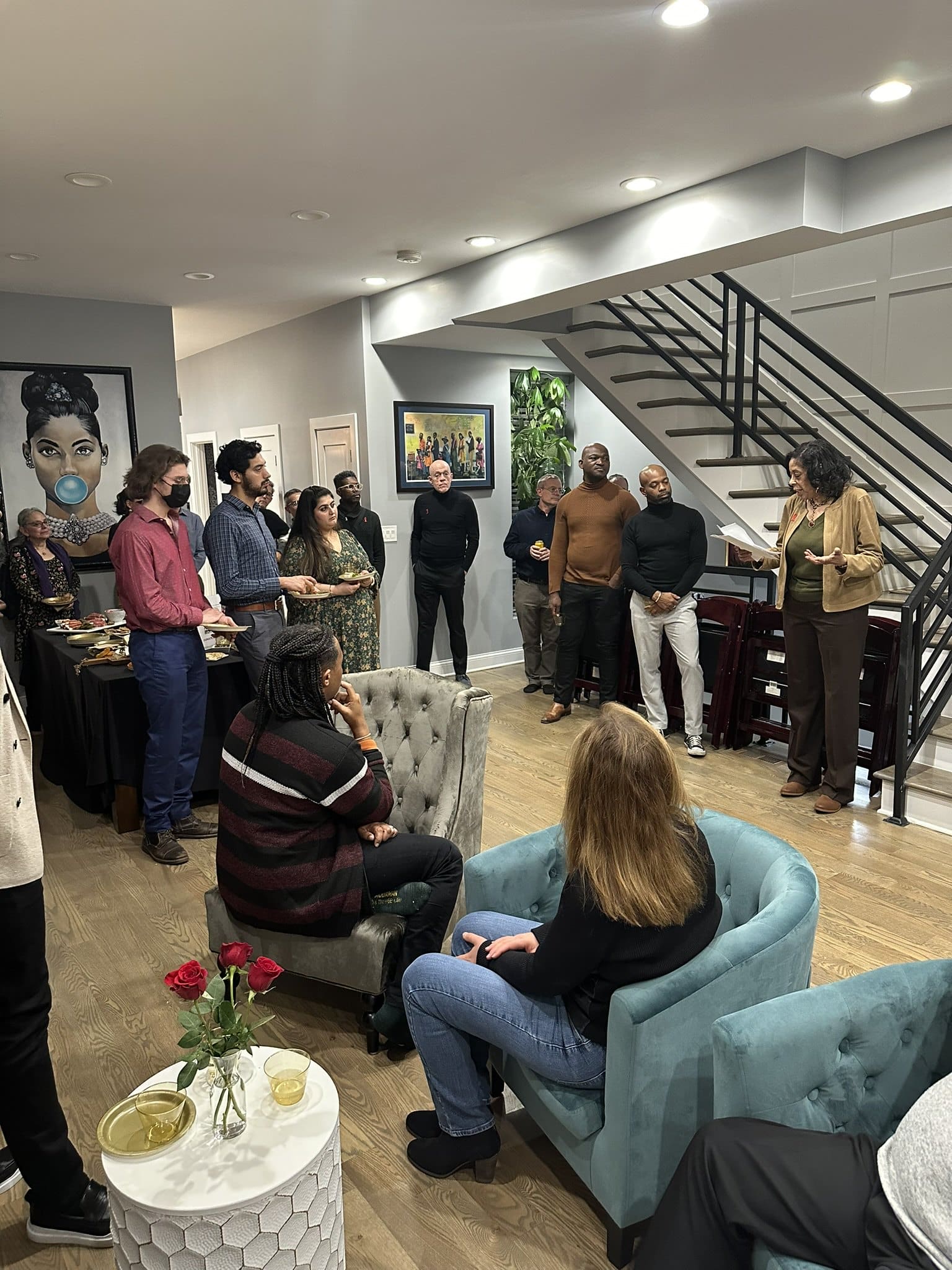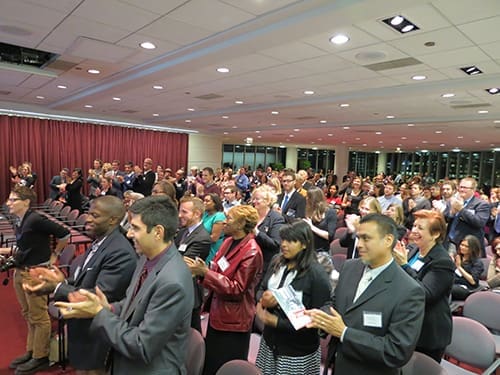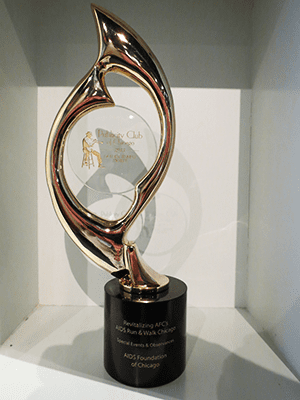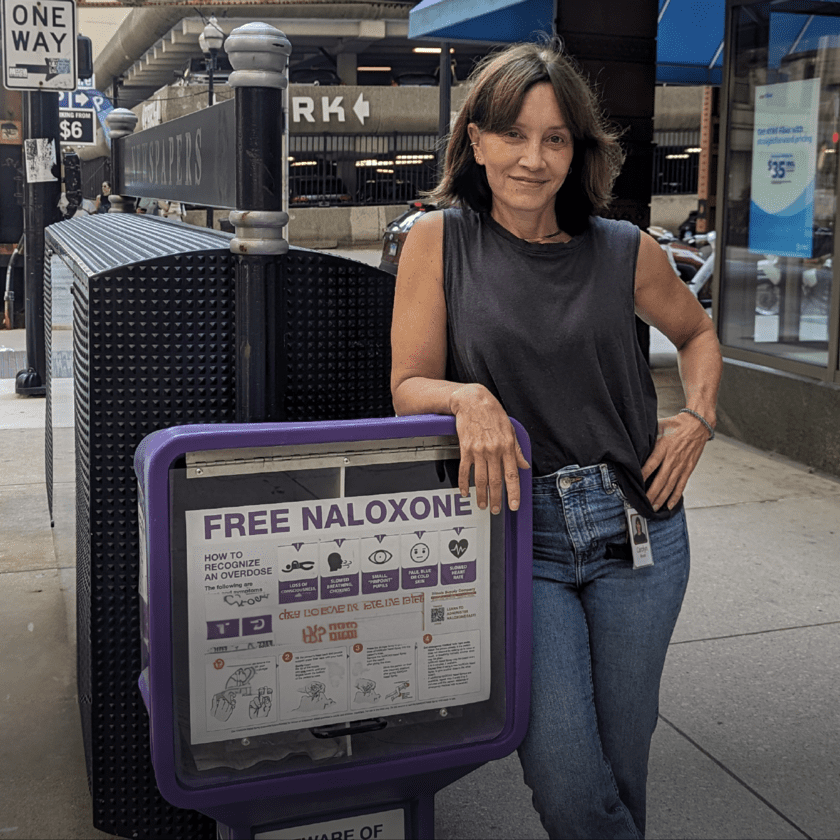The Learning Circle Collaborative (LCC) is an organizational development and capacity-building initiative for Black-led Organizations in Chicago, conceived by Dr. Cynthia Tucker of AIDS Foundation Chicago (AFC) in 2016. The newest cohort for 2024 consists of small and growing Black-led organizations serving Black Chicagoans through HIV care and prevention. These hard-working community organizations provide access to services on the ground in neighborhoods and offer critical linkage to care and support for people living with and vulnerable to HIV and chronic conditions. The new LCC cohort members are making Black History in Chicago by charting new pathways to better serve our communities, and by creating new opportunities for people with and vulnerable to HIV to thrive.
The new LCC cohort consists of a dedicated group of community advocates, activists and innovators deeply engaged with and attuned to the unique needs of their communities. These organizations and their Executive Directors include:
- Gina Lamar Evans of Nefuse
- Dr. Keith Green of the Chicago Black Gay Men's Caucus
- Adam MacMath of Black Alphabet
- Willie Davis of WE Organization
- Don Abrams of Pride in the Pews
The new LCC cohort was selected by a group of experts through a competitive application process and will receive funds as well as professional development opportunities through trainings and meetings with Subject Matter Experts (SMEs), at the value of $15,000. We sat down with Dr. Cynthia Tucker, Senior Vice President, and Tamika Foust, Director of Capacity Building, Training, & Workforce Development, of the Department of Community Partnerships and Special Projects at AIDS Foundation Chicago, to discuss the LCC and how this latest group of grantees is making Black History in Chicago.
AFC: Can you share with us a little background on the Learning Circle Collaborative? Why did you start the LCC, and how is it evolving?
Dr. Cynthia Tucker: The program started in 2016 from a focus group discussion and outcomes. There were concerns about inequities we were seeing with Black-led organizations that weren’t on the same plane as larger organizations. They were having to compete with larger organizations for funding, especially with regard to prevention. I put together a presentation to the board and a board member gave 10,000. The program started small, the first cohort members got micro-grants of $1500 each. We started with just 3 organizations and have grown from there. These are Black-led orgs, primarily working on Black gay men’s health. It is fitting to share this announcement during Black History Month.
Tamika Foust: One of the things most important to Black led orgs, is to be not just seen but also heard. Seeking not just validation, but uplifting. Even inside of the orgs and the communities they are serving, there are not a lot of thankyous, because people are hurting. People may not realize the sacrifices being made by these organizations to put forth the things communities need. We hear you, and we see you.
What was the selection process like for the cohort this year?
Tamika Foust: In the selection process, we try to take ourselves out of the equation. We send out the application to lots of organizations, put a review committee together with SMEs and five to six other people who are experts in the field outside of the cohort, including past partners, generally trusted and experienced people who understand what we are trying to do. We brief the selection boards and go through a grading rubric with them. Organizations receive a rating on a scale of 1-100. The number is given first – then we look to see who ranked highest to lowest, then discuss and reach consensus around the cohort. Dr. Tucker and I do not have a vote.
Dr. Tucker: Two reviewers we have are Board members from AFC. 12 applications were received total, and we funded five. Those five had our top scores, according to our rubric. The process is long, but we want to be fair and make sure that we get the information about this program out there. There were two cohorts this year – the reason was because of funding. We usually do one cohort, with funding from foundations and corporate sponsors, but we did not have that this year, so we did two cohorts which gave us extra time to do the fundraising internally through the AFC External Relations Team. We ended up with nearly the same total funding from previous years. We had $10,000 raised at one event at a Board member Cecil Dearborne’s home. A lot of community members and board members were there, along with several Subject Matter Experts and cohort members. People are really rallying around this program.
Can you share a highlight or something you are excited about for this cohort of organizations’ work?
Tamika Foust: we always try to make an environment where people feel safe speaking. Thankfully, our partners in the LCC were open and told us, “I’m stretched. So if I can’t be here, can a board member or staff member come in my place? Can my assistant come?” With this cohort we specifically stated, “we get that you’re busy!” and encouraged them to focus on specific programs and priorities so that those key staff and people can come in to get information and training they need. We centered LCC projects around those priority initiatives, which can maximize revenue and success for these organizations.
Dr. Tucker: We’ve always had great agencies or organizations. We have people who are really engaged and working out in their community. They have as a part of their history and mission to work with priority populations. You can see the movement and changes that they’re making in their community. For them to take the time to be a part of our network - yes, we are training, we are coaching – but they are putting in the work! These are people who are super busy trying and to stay afloat organizationally, they are working in community, working everywhere – and they might just have seven staff. They don’t have people to delegate to – they are doing it themselves. They are also coming back and sweeping the floor at night. The Subject Matter Experts we connect with our LCC cohort orgs can share their experiences within a specific area to help key members of our LCC organizations get going and apply that new knowledge.
February is Black History Month. How are the latest collaborators in the LCC cohort making Black History in Chicago?
Dr. Tucker: The organizations in LCC collaborate and work together. Some of them have their own funding collaboratives that are not part of AFC. Mind and Wellness, part of Chicago Black Gay Men’s Caucus, helps connect same gender loving men to mental, physical, and spiritual health. Black Alphabet, Pride in the Pews – that’s outside of what AFC is doing. They are being the ambassadors of the issues and the challenges connecting with what people in the community are seeing. They are opening their doors and telling people, “come on in.” One thing I’ve admired is they do the work, they are on the ground – people come to AFC but not in the same way -- these organizations have storefronts that are easier to reach and enter than a downtown office. And they navigate people to services. I call them feeder organizations. Kind of like grammar schools feed to high schools feed to colleges. They don’t have collocated spaces with medical services – but they all team up and work with medical services to make sure people have access. That is what we want – we can say we know the stats and know that people are undiagnosed – but we need these organizations to get people access – and this cohort is a group that truly takes that to heart.
Tamika Foust: I really love what Black Alphabet brings to the table. They are not your typical organization. They focus on art. A lot of people don’t think about mental or emotional health. Black Alphabet, like the others in our cohort, places the emphasis on the total person, and offers a creative outlet. If you are feeling good mentally, emotionally – other things fall into place. To be able to have an outlet to create and express thoughts and feelings, and allow that to be magnified and validated, that is one of the most exceptional tools we have. Our LCC partners have this ability, to be an open space to provide care and validation.
Are there elders or past trailblazers you would like to honor and acknowledge in making possible the work that you and the LCC are doing today?
Dr. Tucker: Of course! Some of the first organizations – like Task Force Community Services. They are amazing. I’ve worked with three different Executive Directors as part of that program. Dr. Christopher Balthazar has done so much, they have moved mountains! Jerome Montgomery, part of Project VIDA, they had been struggling until he came in; he’s a systems engineer and came in as Executive Director. And Eric Cabeler from Alliance 360, they had a different name before. But those three orgs have remained. They were part of us in 2016. They have built infrastructure, they have changed their funding, opened it up. They were small then but now they’re doing things like case management, housing. Life Is Work and Brave Space Alliance are two more I should mention. We’ve worked with so many organizations across this program. They are all doing amazing work. Dr Leith Green from Chicago Black Gay Men’s Caucus. He came on, then left and went back to school, and then came back to bring the organization new life.
I should also mention that AFC has always been behind this project since I requested it. We often don’t give AFC enough credit, we always say AFC can do better, which is true. But this is one thing they stood up and did to ensure we were working with Black-led organizations. Many who have come through past cohorts are now directly funded by AFC. For example, Life Is Work. Now they have housing money, and care money. That’s huge for a small organization. We are helping to build their budgets, and their infrastructure, so organizations can become funded by AFC, and also AFC partners like the Chicago Department of Health, or the Illinois Department of Public Health. The organizations do the work, we show them the water, and they are definitely drinking it.
Tamika Foust: I’m excited and privileged to be a part of this work. We learn from the organizations just as they learn from us. It’s not top down. We are all learning and growing together. It’s truly an honor to be a part of this.




